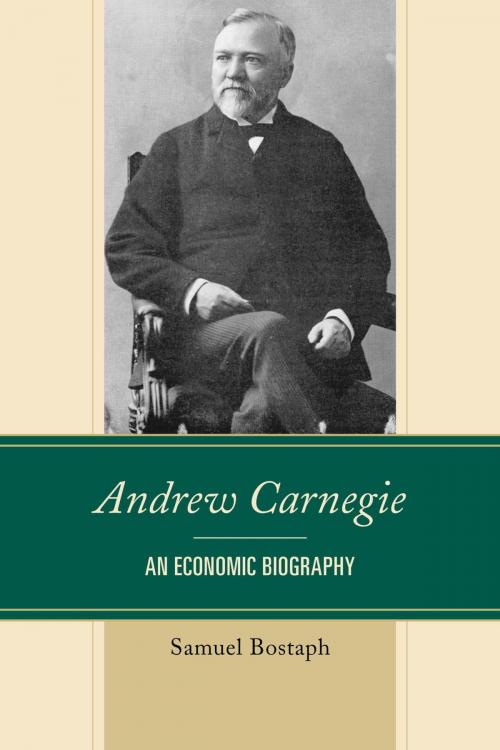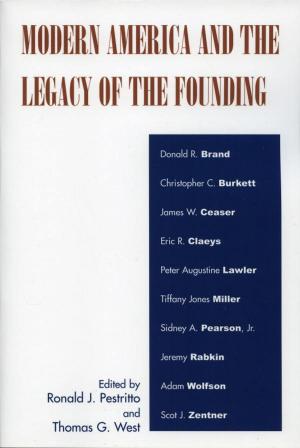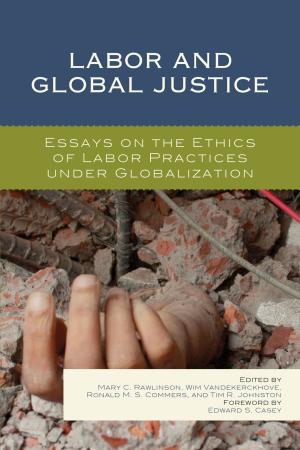Andrew Carnegie
An Economic Biography
Business & Finance, Career Planning & Job Hunting, Entrepreneurship, Entrepreneurship & Small Business| Author: | Samuel Bostaph | ISBN: | 9780739189849 |
| Publisher: | Lexington Books | Publication: | October 8, 2015 |
| Imprint: | Lexington Books | Language: | English |
| Author: | Samuel Bostaph |
| ISBN: | 9780739189849 |
| Publisher: | Lexington Books |
| Publication: | October 8, 2015 |
| Imprint: | Lexington Books |
| Language: | English |
This biography of Andrew Carnegie emphasizes the economic dimension of his career in industry. It examines his life as a dynamic innovator during the period when the steel industry rapidly expanded and the United States became a major industrial power. Carnegie rose from a poverty-stricken Scottish childhood to a position of international industrial leadership, philanthropy, and peace advocacy, by means of intelligence, entrepreneurship, ambition, tenacity, guile, and ruthless determination. It is shown that Carnegie excelled as an economic actor. His alertness to expected profit opportunities, and success in coping with the uncertainties of the marketplace, made him a major influence on the growth of many of the most important industries of late-nineteenth century United States and world economies. His contribution to the better coordination of the actions of both demanders and suppliers in those industries by managerial, technological, and institutional innovations is emphasized. It is also argued that those profit-seeking actions and innovations occurred in the context of political policies and social institutions that produced a tremendous mal-investment of resources. This mal-investment was a result of protective tariffs, the stimulus and waste of war, and government subsidization of the railroad industry. Carnegie’s role in this massive diversion of resources from other uses to those from which he personally benefitted is also emphasized. Lastly, Carnegie’s actions in giving away the great personal fortune that he accumulated as he built his business empire are examined and their economic implications assessed.
This biography of Andrew Carnegie emphasizes the economic dimension of his career in industry. It examines his life as a dynamic innovator during the period when the steel industry rapidly expanded and the United States became a major industrial power. Carnegie rose from a poverty-stricken Scottish childhood to a position of international industrial leadership, philanthropy, and peace advocacy, by means of intelligence, entrepreneurship, ambition, tenacity, guile, and ruthless determination. It is shown that Carnegie excelled as an economic actor. His alertness to expected profit opportunities, and success in coping with the uncertainties of the marketplace, made him a major influence on the growth of many of the most important industries of late-nineteenth century United States and world economies. His contribution to the better coordination of the actions of both demanders and suppliers in those industries by managerial, technological, and institutional innovations is emphasized. It is also argued that those profit-seeking actions and innovations occurred in the context of political policies and social institutions that produced a tremendous mal-investment of resources. This mal-investment was a result of protective tariffs, the stimulus and waste of war, and government subsidization of the railroad industry. Carnegie’s role in this massive diversion of resources from other uses to those from which he personally benefitted is also emphasized. Lastly, Carnegie’s actions in giving away the great personal fortune that he accumulated as he built his business empire are examined and their economic implications assessed.















